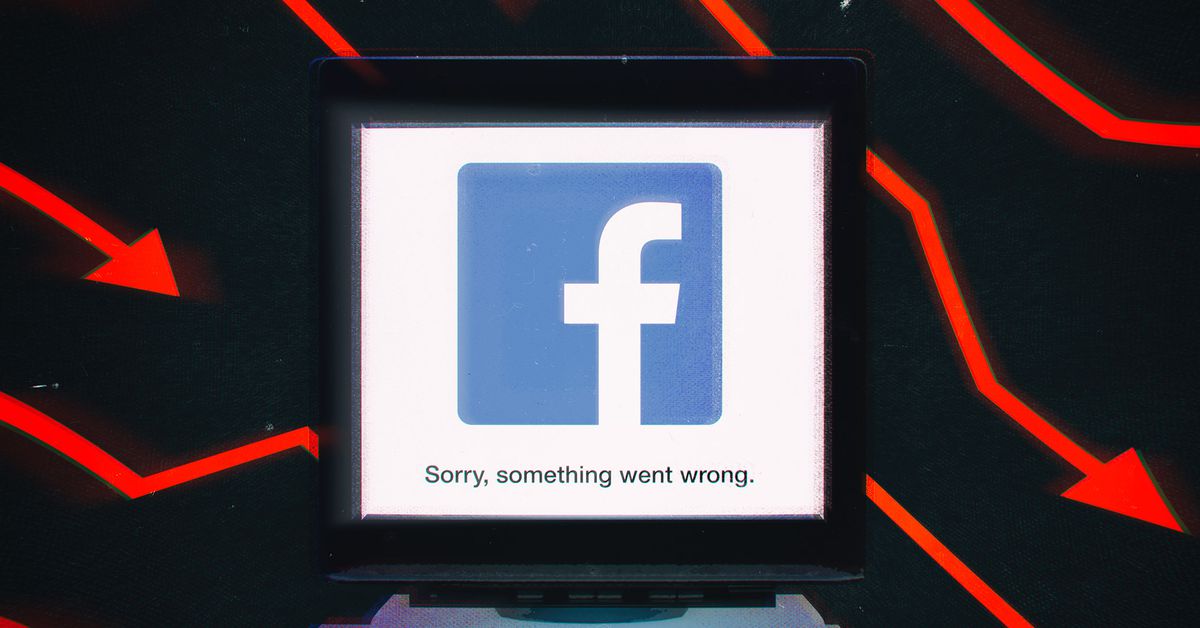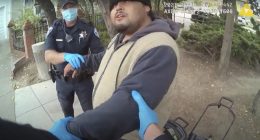
Jason Wong picked the wrong day to restock his false eyelash line. Yesterday, in the midst of a nearly day-long Instagram and Facebook outage, Wong and his company, Wonghaus Ventures, planned to run a Facebook and Instagram ad campaign to promote the restock, and to have influencers post sponsored content about it. The posts went up, but few people saw them. Wong estimates the outage cost his company around $10,000 in revenue.
“Looking at our prior revenue for the past seven or eight days, and looking at what happened today, we can kind of estimate how much money we lost based on our past week’s history,” he says.
Wong isn’t the only one who lost money from the outage. Millions of companies advertise on the platform or rely on sponsored posts to do the marketing for them. When it goes down, they lose valuable communication lines to the public. Instagram and Facebook are economies unto themselves where people can see advertisements and buy directly from them. The outage is as if billboards and radio ads disappeared from a city, and no one could find the stores where the advertised products are anyway.
Facebook anticipates events like this and doesn’t charge advertisers for their campaigns unless specific results are achieved. When people advertise, they choose whether they want to gain impressions (people seeing their post) or conversions (people actually clicking their post), and they’ll only pay for the people who follow through on that action. In this way, Wong and others shouldn’t have lost money directly. Their losses involve lost potential revenue or the lack of people who clicked on an ad and bought something.
Wong says his company typically makes between $8,000 and $10,000 per day split between his eyelash business, Doux Lashes, and other products like the Holy Meme Bible, a coloring book, and Memebanz, a card game. Yesterday essentially amounted to no revenue through Facebook or Instagram.
Businesses that weren’t selling things directly say they still expect to lose money because of the outage. Laura Faint, head of performance marketing at product design studio AJ&Smart, tells The Verge that the company saw a 4 to 6 percent decline in clicks and engagement yesterday. That means following up with and offering design services to fewer people. “Based on how our campaigns are set up, it’s likely that during the weekend we’ll see the impact of this in our revenue,” Faint says.
The outage hit harder for businesses that were trying to advertise specific events. Candy Calderon, a holistic health and wellness coach, is holding an online training for women entrepreneurs today, and she intended to purchase last-minute ads on Facebook, Instagram, and Instagram Stories to promote it. She says the Facebook ads never ended up running because of the outage, and she can’t tell if they ever ran on Instagram. Because they never showed up, Calderon missed out on potential enrollment in her course.
Calderon also says that she was charged for her Instagram ads, even though she’s unsure whether anyone saw them. “My main thing is if [Instagram] kept eating my budget while nobody was seeing my ad, thus not enrolling in my class or even at least having awareness of it, there are so many ways in which this is a loss for me, not only monetary,” she says in an email to The Verge.
A side business of influencer marketing plays a large role on Facebook’s platforms, too, and is another way businesses lost money. Wong says that, in addition to losing his expected potential revenue, he made deals with influencers to advertise the products. Those deals are less formal and will likely cost him because they were posted on a day with dramatically reduced visibility.
Influencers often sign contracts with brands in which they agree to post content within a certain window of time, says Mae Karwowski, founder of influencer marketing company Obviously. She notes that these contracts often include a clause about a “force majeur,” or an unforeseen circumstance, like Instagram going down, which allows brands and influencers to reschedule posts.
Karwowski says she’s “pretty confident no influencers were harmed in the outage,” although they might have lost engagement if they posted right before the outage, and a post didn’t perform well because of it.
“A weird outlier situation like this is a good reason why brands should have strong relationships with their influencers rather than working with an influencer once and never engaging with them again,” she says in an email to The Verge. “Influencers are people and they will do more than the contract requires if they’ve got a good relationship!”
Wong says, in his case, the deals were made over DMs and without a formal contract. He also hasn’t built a relationship with the influencers, so he doesn’t necessarily anticipate getting his money back, although he hopes they’ll consider posting again so that his team can continue working with them.
“I think that if you’re a mature influencer, you’ll understand that there’s more money than just this one-time fee,” he says. “If you’re able to help us with this request, help us accommodate this special situation, you’re likely to get paid out in the long run.”
Generally, Wong says his company doesn’t only advertise on Instagram and Facebook, so while the outage did cost him money, it isn’t putting him out of business. Faint said the same thing.
“Facebook is huge for our business, and we’ve had fantastic success from it as an advertising channel, but I’m even more aware than ever of the need to make ourselves less vulnerable,” she says.
Wong also wishes that Facebook would be more open about what’s happening on the backend.
“They should be a little bit more transparent with the advertisers, especially since we are the ones that are funding their platform.”
This article is from The Verge









